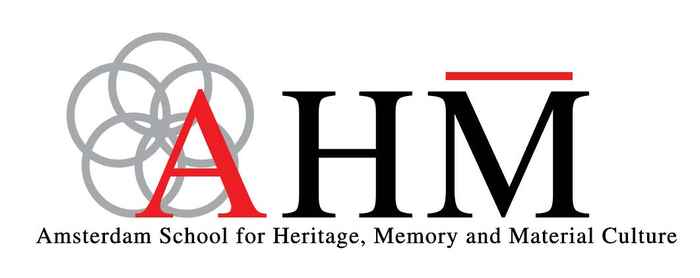Call for Papers: A Polyphony of Emotions
Thinking Affect in Heritage, Memory and Material Culture
17 December 2024

Understanding the role of emotions in heritage sites, memory acts and material culture practices, policies and politics is essential to grasp how the past is experienced, contested, romanticized, rejected or silenced across various local, national and transnational levels. In response to the need to better understand these processes, the 11th annual conference of the Amsterdam School for Heritage, Memory and Material Culture (AHM) will be dedicated to the polyphonies of emotions and thinking affect in heritage, memory and material culture studies. By crossing academic, artistic and professional boundaries, the aim of the conference is to investigate how the past can be constituted as a battleground where emotions are designed, weaponized and manipulated to advance political and ideological agendas, or to shape the mobilization of communities. This conference aims to explore the dynamic relationship between heritage and collective emotions, focusing on how emotions affect varied global heritage and memory practices, narratives and policies, and, vice versa, how heritage can serve as a tool for emotional mobilization, resilience and reconciliation.
We welcome abstracts and proposals for papers, panels and roundtables emanating from diverse historical and geographical contexts that engage with (but are not restricted to) the following themes:
- Theories of emotions and heritage: what theoretical perspectives can illuminate the relationship between heritage, emotion, and conflict, and how can these frameworks deepen our understanding of the emotional dimensions of heritage?
- Emotions and the politics of heritage and social justice: how do emotions contribute to preserving or challenging dominant and hegemonic heritage narratives? What role do emotions play in (re)shaping research positionalities, resisting cultural and political polarisation or facing systemic oppression and unjustice?
- Emotions and heritage construction: how are emotional narratives intentionally constructed in heritage sites, museums, works of literature, films, and commemorations, with the aim of influencing collective memory and identity?
- Emotion and collective memory: how do emotional frameworks shape collective memory and the understanding of the past?
- The weaponization of emotions in conflict: how are emotions strategically manipulated to justify the destruction of cultural heritage or to mobilize communities to defend it?
- Heritage and collective solidarity: in times of crisis, how do communities utilize heritage to foster emotional resilience, solidarity, and a sense of shared purpose?
- Methodologies for studying emotions and heritage: what innovative qualitative and quantitative research methods are most effective for analyzing the role of emotion in heritage studies?
Proposals can be submitted by March 15th, 2025 to ahmannualconference@gmail.com.